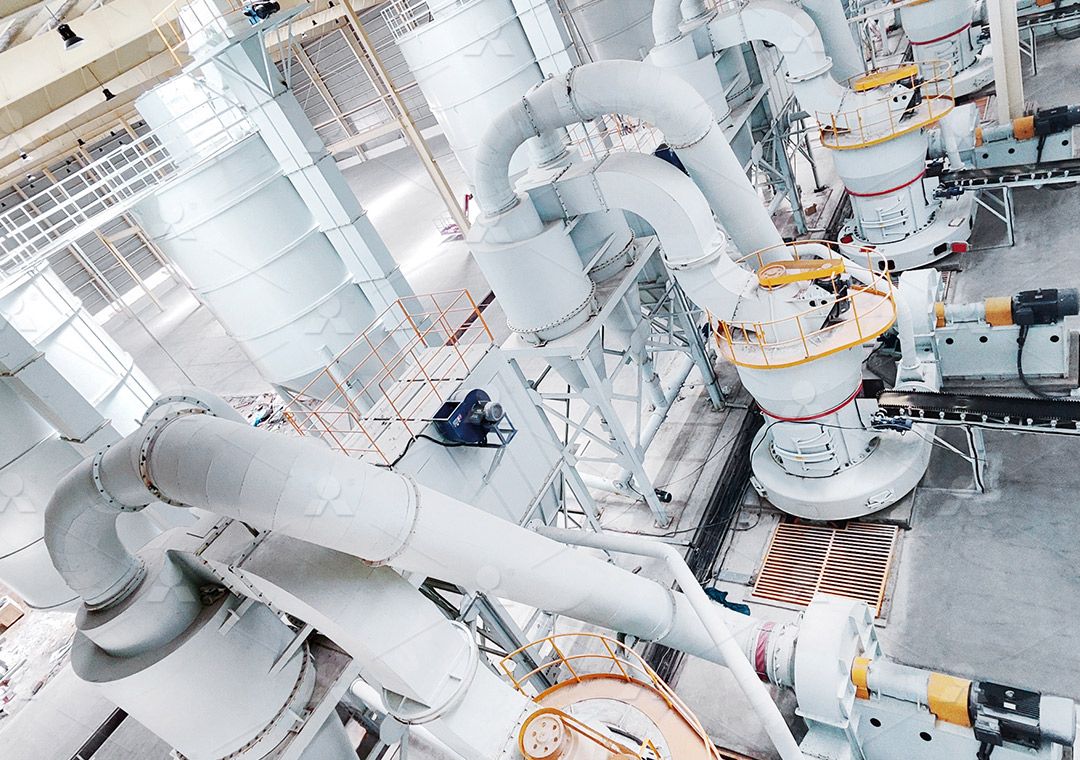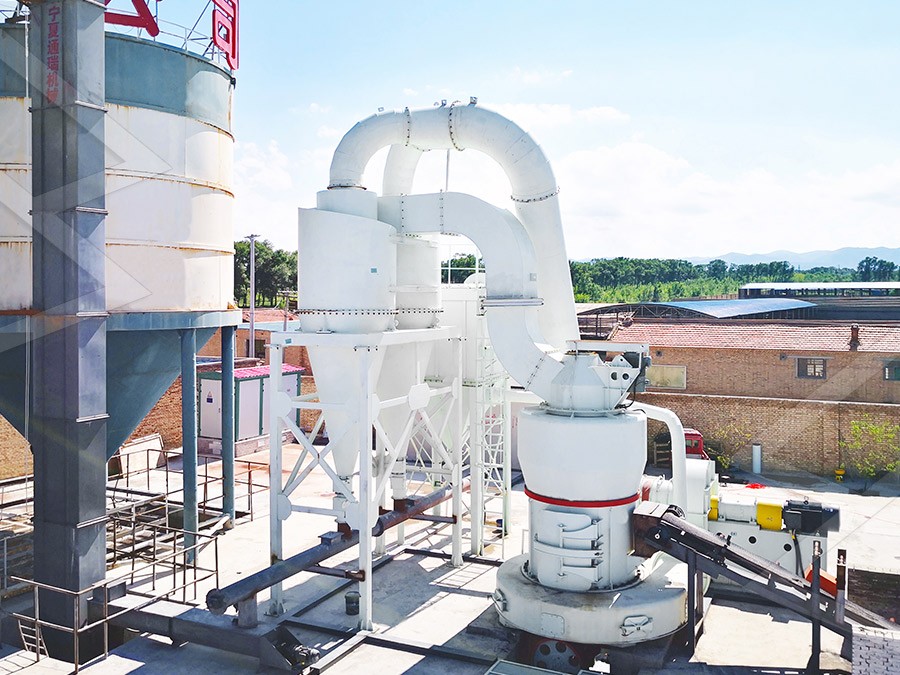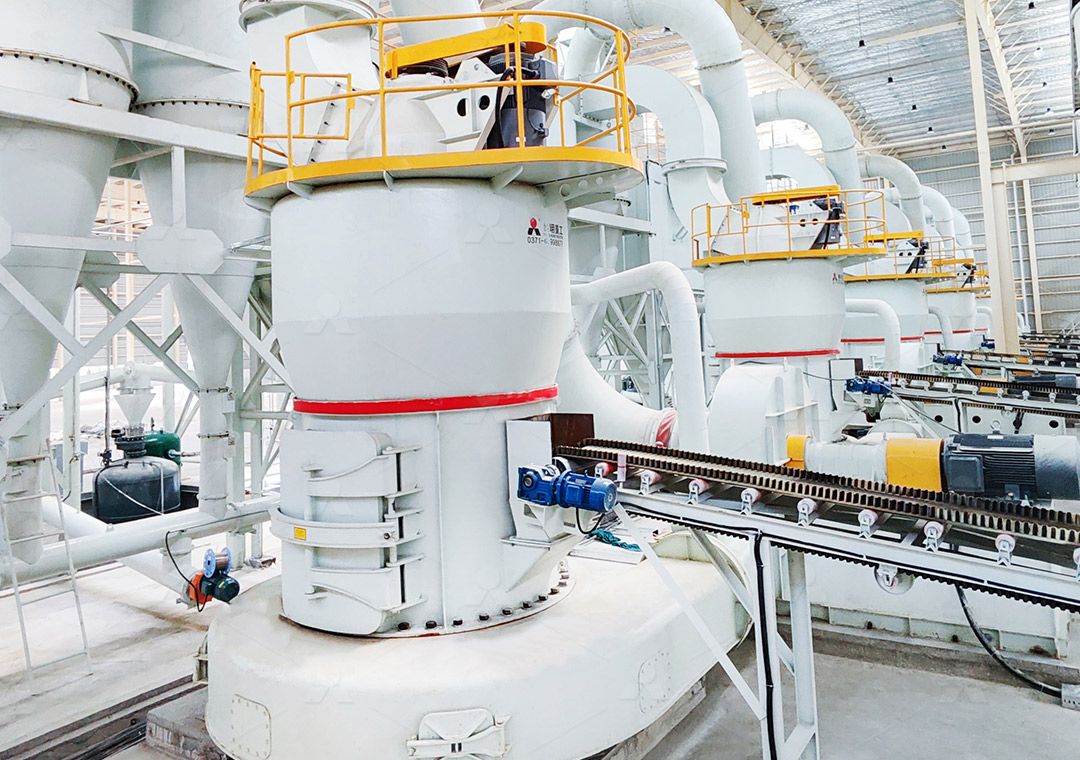Desulfurization Gypsum Grinding Plant for Power Plants
We provide a wide range of mills — including Raymond mill, trapezoidal mill, vertical mill, ultrafine mill, and ball mill, obtained ISO9001 international quality certification, EU CE certification, and Customs Union CU-TR certification. Suitable for processing minerals such as limestone, phosphate, quicklime, kaolin, talc, barite, bentonite, calcium carbonate, dolomite, coal, gypsum, clay, carbon black, slag, cement raw materials, cement clinker, and more.
The discharge range of these mills can be adjusted to meet specific processing needs, typically from 80-400 mesh, 600-3250 mesh, and can achieve the finest particle size of up to 6000 mesh(D50).
If you are looking for a reliable grinding solution to turn stone or minerals into fine powder, please feel free to contact our online customer service.
Desulfurization Gypsum Grinding Plant for Power Plants
Modern power generation facilities face increasing pressure to minimize their environmental footprint while maintaining operational efficiency. Flue Gas Desulfurization (FGD) systems have become standard equipment, producing substantial quantities of desulfurization gypsum as a byproduct. Proper processing of this material through specialized grinding plants transforms waste into valuable products for construction and industrial applications.

The quality of ground desulfurization gypsum directly impacts its market value and application potential. Achieving the optimal particle size distribution requires advanced grinding technology specifically designed for gypsum processing. Traditional grinding methods often fall short in terms of energy efficiency, product consistency, and environmental compliance.
Technical Challenges in Gypsum Processing
Desulfurization gypsum presents unique processing challenges due to its moisture content, crystal structure, and varying composition. Effective grinding solutions must address several critical factors: moisture management during processing, consistent fineness control, energy consumption optimization, and dust emission control. The grinding equipment must maintain stable operation despite fluctuations in feed material characteristics.
Power plants require grinding systems that integrate seamlessly with existing FGD operations, offering reliable performance with minimal downtime. The equipment must handle throughput requirements while meeting strict environmental regulations for noise and dust emissions.

Advanced Grinding Solutions
For power plants seeking to optimize their desulfurization gypsum processing, the MW Ultrafine Grinding Mill represents a technological breakthrough. This advanced system handles input sizes of 0-20 mm with capacities ranging from 0.5-25 tph, making it suitable for various plant scales. The mill’s intelligent design addresses the specific requirements of gypsum processing while delivering exceptional operational efficiency.
The MW Ultrafine Grinding Mill incorporates several proprietary technologies that make it particularly suitable for power plant applications. Its innovative grinding chamber design eliminates rolling bearings and screws in the grinding zone, preventing common failure points and ensuring continuous operation. The efficient pulse dust collector and muffler system effectively controls dust and noise, maintaining compliance with environmental standards.
Operational Advantages for Power Plants
When processing desulfurization gypsum, the MW Ultrafine Grinding Mill demonstrates significant advantages over conventional grinding systems. The equipment achieves 40% higher production capacity compared to jet grinding mills and double the output of ball grinding mills, while consuming only 30% of the energy of jet grinding systems. This efficiency translates directly to reduced operating costs for power plants.
The mill’s cage-type powder selector, incorporating German technology, enables precise fineness adjustment between 325-2500 meshes. This flexibility allows power plants to produce gypsum products tailored to specific market requirements, whether for construction materials, agricultural applications, or industrial uses. The system achieves a remarkable screening rate of d97≤5μm in a single pass.

System Integration and Reliability
Successful implementation of desulfurization gypsum grinding plants requires careful consideration of system integration. The MW Ultrafine Grinding Mill is designed for seamless incorporation into existing power plant operations, with external lubrication systems that enable maintenance without production interruptions. This feature is particularly valuable in power generation environments where continuous operation is critical.
The digital processing and numerical control manufacturing of core components ensure high precision and reliability. With comprehensive technical support and genuine spare parts availability, power plants can maintain optimal grinding performance while minimizing operational risks.
Frequently Asked Questions
What makes the MW Ultrafine Grinding Mill suitable for desulfurization gypsum processing?
The MW Mill specifically addresses the challenges of gypsum grinding with its unique chamber design that eliminates internal bearings and screws, preventing contamination and maintenance issues. Its adjustable fineness control and efficient dust collection system make it ideal for producing high-quality gypsum products from FGD byproducts.
How does the energy consumption compare to traditional grinding systems?
The MW Ultrafine Grinding Mill reduces energy consumption by approximately 70% compared to jet grinding mills and 50% compared to ball mills while achieving higher production capacity. This significant efficiency improvement directly lowers operating costs for power plants.
What particle size range can be achieved for desulfurization gypsum?
The system produces gypsum powder with fineness adjustable between 325-2500 meshes (approximately 45-5 microns), with the capability to achieve d97≤5μm in a single processing stage. This range covers most industrial and construction applications.
How does the mill handle variations in gypsum moisture content?
The grinding system incorporates advanced drying capabilities that can handle typical moisture variations in desulfurization gypsum. The integrated design ensures consistent product quality regardless of feed material fluctuations.
What environmental benefits does the system provide?
Beyond transforming FGD byproducts into valuable materials, the mill features comprehensive environmental protection measures including efficient pulse dust collectors, noise reduction technology, and full compliance with national environmental standards.
